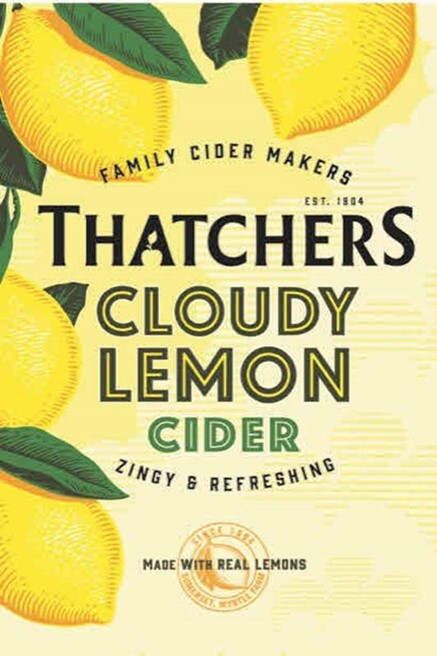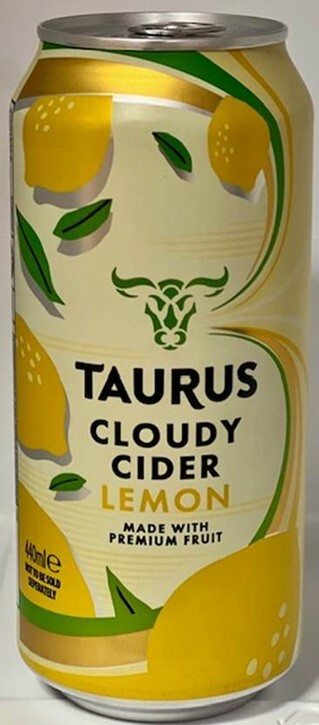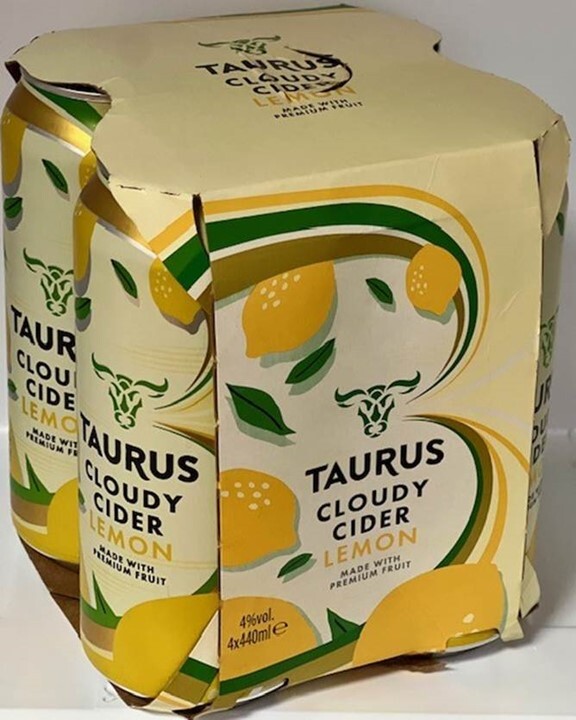Aldi survives cloudy cider can challenge! In a case involving competing cans of cloudy lemon cider, the UK High Court has held that Aldi’s Taurus cloudy lemon cider does not infringe or 'pass off' Thatcher’s can of cloudy lemon cider. Our Intellectual Property team reviews the latest blockbuster in copycat / lookalike case law, and its impact for brand owners.
The High Court of England and Wales has delivered a judgment in the eagerly awaited Thatchers Cider (Thatchers) versus Aldi Stores (Aldi) trade mark infringement and passing off case. Although Thatchers was ultimately unsuccessful in both claims, the High Court decision is unlikely to represent the end of the matter and may yet be appealed. We review the judgment and its impact for brand owners in the food and beverage industry.
Background
Thatchers is the owner of UK registered trade mark number 3489711 for the below device mark protecting “Cider; Alcoholic beverages, except beer” in Class 33.

Since February 2020, it has used the above mark on its canned cloudy lemon cider product (the “Thatchers Product”). In May 2022, Aldi launched a competing cloudy lemon cider product (the “Aldi Product”) within its own brand Taurus range, sold as 4-can packs, as depicted below.


Thatchers responded by instituting High Court proceedings against Aldi claiming trade mark infringement and passing off.
Benchmarking
Aldi denied the claims. It did, however, accept that it used the Thatchers Product as a ‘benchmark’ when developing the Aldi Product. While both parties agreed that in the arena of product development by retailers and manufacturers, the concept of ‘benchmarking’ against an existing product is standard market practice, the Court was satisfied that the Thatchers Product was being used by Aldi as a benchmark in regards to the design as well as the packaging.
Finding on overall appearance
The High Court concluded that the average consumer is a retail purchaser of alcoholic beverages, including cider. In the Court’s view, the overall impression of Thatcher’s trade mark in the minds of the average consumer is dominated by “THATCHERS CLOUDY LEMON CIDER” within a roundel, with the lemons, leaves and background colour playing important parts.
On the other hand, the dominant elements of Aldi’s sign are the central element on the front and back of the can, which is made up of the bulls head device with the brand “TAURUS” beneath. The yellow, green and gold ‘swoosh’ emanating from the bulls head device in Aldi’s sign were “important but not dominant” as were the whole yellow lemons disposed around the top, bottom and left edge front and back; and the creamy yellow background.
On the question of overall appearance, the Court concluded:
- The brand names THATCHERS and TAURUS are aurally and conceptually dissimilar.
- The swooshes on Aldi’s sign are a point of visual dissimilarity.
- The cloudy lemon cider/cloudy cider lemon wording is visually similar, conceptually identical and aurally similar as they are the same words with the same meaning, but in a different order. However, they are merely descriptive of the products to which the signs are applied, and the average consumer will understand this.
- The fact that whole lemons and green leaves are used on both signs is a point of visual similarity and conceptual identity, but they are dealt with differently in (i) the style of the lemons, (ii) the arrangement of lemons, and (iii) the treatment of the leaves.
These differences considerably decrease the importance or weight of similarity of the fact of lemons and leaves in the overall effect produced by both signs. The Court therefore held that the competing signs are similar, but to a low degree.
Evidence of confusion
The High Court was also heavily influenced by the fact that there was no “direct evidence of actual confusion of a direct or indirect nature.” Evidence of discussions about the competing products on social media, largely post-dated the launch of the proceedings by Thatchers. As such, it was not relevant for the purposes of assessing the likelihood of confusion, as in the Court’s view, it amounted to commentary on the proceedings. On this point, the Court commented that the fact that there is no real evidence of direct or indirect confusion, despite the very high volumes of sales of both the Aldi Product and the Thatchers Product “is a factor weighing against the likelihood of confusion.”
Decision
Judge Melissa Clarke held that the trade mark infringement claim failed. Although the average consumer may look at Aldi’s Product and it might bring to mind the Thatchers Product, this was not sufficient for confusion to arise. Despite the acknowledgements regarding ‘benchmarking’ by Aldi, the Judge was satisfied that Aldi did not develop the Aldi Product with an intention to take advantage of the goodwill and reputation in the Thatchers trade mark. Similarly, the Judge was satisfied that there was no misrepresentation that Aldi is connected in trade with Thatchers. As such, the claim in passing off also failed.
Comment
Although the decision is from the High Court of England and Wales, it may have persuasive authority before the Irish Courts. Arguably, the decision represents a setback for food and beverage companies who were hoping that an alternative decision could be a useful precedent for deterring copycat competitors. That being said, it may be appealed by Thatchers and may not represent a conclusion of the case. It does, however, serve as a reminder of the difficulties with establishing a case in passing off and in enforcing goodwill in product get up and packaging against third-party competitors.
For more information and expert legal advice on the impact of this decision and how best to protect your intellectual property rights, please contact a member of our award-winning Intellectual Property team.
The content of this article is provided for information purposes only and does not constitute legal or other advice.
Share this:



